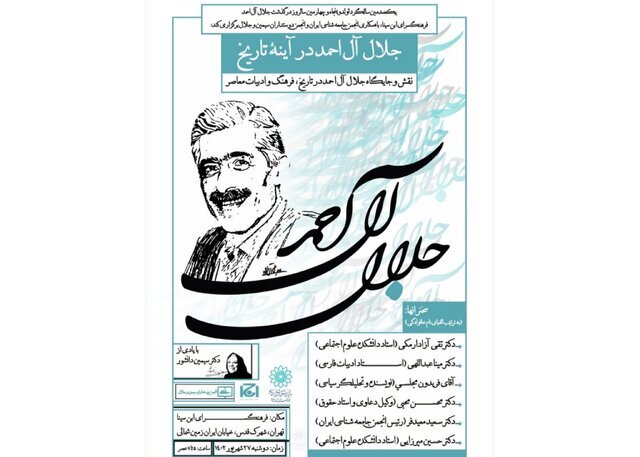Tehran meeting to pay tribute to Jalal Al-e Ahmad

TEHRAN – To commemorate the 100th anniversary of Jalal Al-e Ahmad's birth and 54th anniversary of his passing, a meeting will take place at the Ibn Sina Cultural Center in Tehran on Monday.
Entitled "Jalal Al-e Ahmad in the Mirror of History", the session will examine Al-e Ahmad's role and position in contemporary history, culture, and literature.
The session will feature speeches by a number of literati and scholars including Taqi Azad Armaki, Fereydun Majlesi, Mohsen Mohebi, Hossein Mirzai, and Mina Abdollahi.
Born in 1923, Al-e Ahmad spent his childhood in relative comfort. Many members of his family, including his father, older brother and a brother-in-law, were all Muslim clerics.
Early in the 1930s, when the Ministry of Justice under Reza Pahlavi, the Iranian monarch who ruled from 1921 to 1941, began to regulate the activities of the clergy, Al-e Ahmad’s father went into voluntary retirement. His decision forced young Jalal to leave school and work at various jobs in the marketplace such as watchmaking and selling leather goods.
He was a member of the Tudeh Party, an Iranian Communist organization, and also translated works by French writers André Gide, Jean-Paul Sartre and Albert Camus into Persian.
Throughout his life, Al-e Ahmad held various positions such as a teacher, journalist, and university lecturer.
In 2008, Iran established the Jalal Al-e Ahmad Literary Awards in memory of the writer, who passed away in 1969.
He is widely regarded as one of the most influential Iranian writers of the 20th century, renowned for his works exploring political, social, and economic issues that shape Iranian society. His critical essays, including "Westoxication" and "Occidentosis," remain relevant even today.
His novel "By the Pen" explores the connections between an individual's personality and the society they live in, while his book "The School Principal" depicts dictatorship and corruption in the education system. Al-e Ahmad's contributions to Iranian literature and society cannot be overstated.
SAB/
